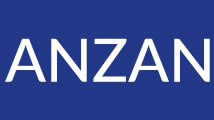Trainee Positions At St George Hospital Kogarah
St George Hospital Kogarah
NSW,
Australia
Contact Details
Dr Louise Allport
louise.allport@health.nsw.gov.au
Phone : 0425019504
www :
Positions
Training Positions : 4
Elective Training Positions :
Fellowships :
Core Position Descriptions
4 fully accredited positions suitable for first and second year trainees.
St George is a large tertiary referral center that includes ICU, ED and trauma services.
Excellent training opportunities in acute stroke medicine/TIA, epilepsy, infection, MS, neuromuscular, movement disorders, headache and neurophysiology. Intensive care exposure heavily represented. Good exposure to neurological obstetric emergencies, psychiatry and paediatric (upper age limit) neurology. Trainees rotate through core positions including the neurology/stroke ward, inpatient consultations and general neurology clinics, neurophysiology and subspecialty clinics and evening registrar role.
Neurology outpatient clinics and subspecialty clinic time are mandated and include - general neurology, movement disorders, first seizure/epilepsy, neuromuscular, MS and headache clinics.
Excellent neurophysiology training within a busy teaching unit, including SFEMG, SSEP etc.
Elective Position Descriptions
Hospital Information
St George Hospital has served the local area for more than 100 years, but only took on the mantle of a major teaching hospital in the last 25 years or so. Despite its 700-odd beds, and the fact that it has one of the busiest Emergency Departments in Sydney, it remains a pleasant place to work and train. All major specialties are to be found at St George, and, importantly, we have an excellent relationship with our Neurosurgeons, who offer an outstanding service.
Department Beds :
24 beds including 8 ASU protected beds.
Department Clinics
Multiple General Neurology Clinics on rotation.
Department Specialty Clinics
Movement disorders (Botox), first seizure/epilepsy, neuromuscular, MS and neuroimmunology, headache (Botox), TIA. There is extensive exposure to neurophysiology clinics on multiple days per week. This includes exposure to SFEMG, SSEP, VEP.
Department Meetings
Internal meetings include a weekly Neurology Grand Rounds, prepared by the registrars or consultant, weekly Medical Ground session (at which Neurology presents twice per year), monthly neurology journal club, monthly morbidity and mortality meeting and monthly complex case meeting. There is a second weekly neuroradiology meeting with the neurosurgical service.
Weekly protected time for NCS/EMG and EEG teaching.
Monthly LHD neurophysiology and epilepsy meetings are mandated for the trainees who may present cases.
External meetings include the Brain School training sessions (protected teaching time), regular evening meetings of various neurological societies. We support our trainees to attend the ANZAN ASM and AAN.
All ANZAN training weekends are supported and protected.
Department Staff
Dr Louise Allport, Director of Neurology
Dr Justine Wang
Dr Walid Matar
Dr Jane Prosser
Dr Monica Badve
Dr Mahtab Ghadiri
Dr Stephen Duma
Dr Elizabeth Shiner
Dr Roshan Dhanapalaratnam
Dr Penny Gordan
Junior Staff Positions In Neurology
There are 2 ward teams run by 2 registrars, one advanced trainee and one BPT. There is an evening JMO dedicated to neurology and the evening neurology AT from 12-8 pm.
There is one BPT rotation each term.
Trainee Responsibilities
Ward work - assessment and management of patients in ED (including acute stroke) and admitted to the ward. Formulating diagnoses and management plans. Investigation plan including LP if required.
Clinic work - general and subspecialty - assessment of new and follow up patients, provision of Botox where mandated with supervision.
Ward consultations - extensive exposure to the hospital environment with multiple subspecialty sources. This includes assessment, formulation of diagnoses and investigations.
Neurophysiology clinics - with supervision and training from the neurophysiologist, the trainee will become proficient in performing their own studies and is responsible for generating reports.
EEG: the trainee is encouraged to read and report EEG and present to the reporting neurologist of the day.
Evening registrar position - this is a position from 3 to 11 pm during week nights. The trainee is responsible for seeing acute stroke calls, ED referrals and ward management and consults. There is a dedicated neurology JMO from 12-8 pm.
On call requirements - there is no weekday overnight on call after the evening registrar completes the shift. There is 1 in 4 weekends first on call with a designated neurologist. This covers all calls from ED and the wards for that weekend period.
Ambulatory care - there are admissions in the day ward for LP largely.
Meeting presentations - this is a expected role of the trainee for neurology grand rounds, journal club, complex case and M&M cases where appropriate. This also applies to district meetings as mentioned for neurophysiology and EEG.
Selection Criteria
Philosophy Of Training
We are a 10 Neurologist Department, and close contact and interaction is the order of the day, both at the clinical and the neurophysiology laboratory level. We welcome both new and 2nd year trainees, and are willing to nurture and guide if needed, or to give more independence, if appropriate. We like to be kept informed of all major, and most minor, developments regarding our patients. We support attendance by our registrars at important educational meetings. We emphasize the need for effective communication, including summaries, letters and reports - we often review these and discuss suggested improvements.
We have a diverse unit with many subspecialty interests for our trainees. We are supportive of trainees with young children and understand the demands of training in that setting. We are happy to support job sharing arrangements for our female and male trainees.
Neurology Training In State
Other Information
We are a great, cohesive and growing department that values their trainees and the role they play within our unit. We are a busy teaching hospital with great exposure to both acute and chronic neurological disease.

